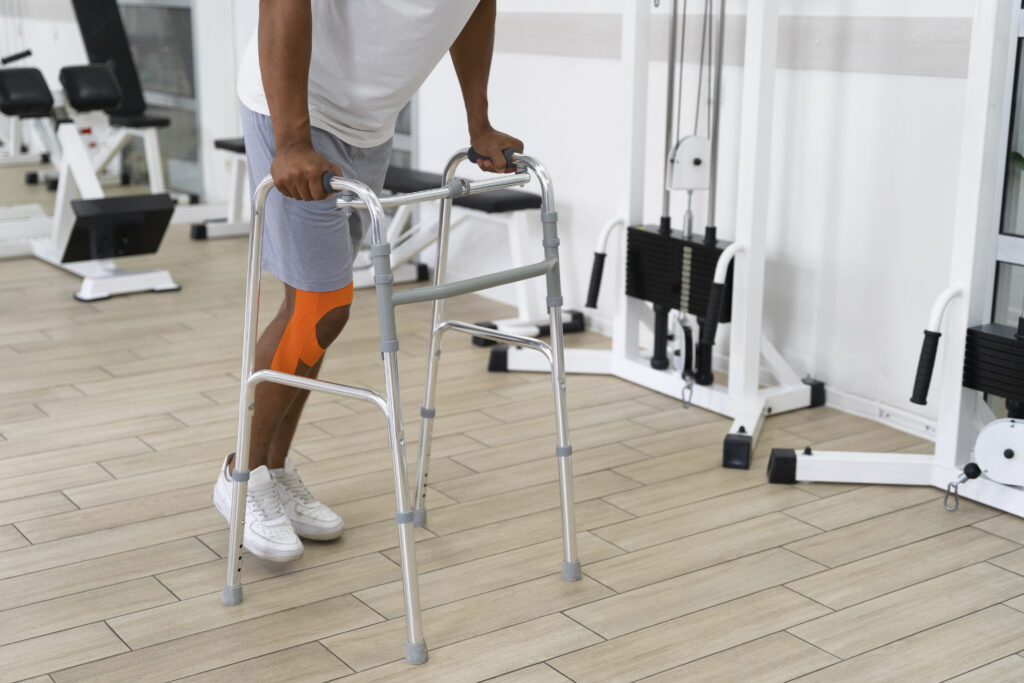Post Fractures

Post fractures rehabilitation after serious injuries can leave an individual with a serious loss in function. Depending on the type and location of the fracture, the individual may require surgery to restore normal bone alignment to allow the bone to heal or a simple sling to support the injured limb. A proper rehabilitation program following a fracture is imperative.
Our physiotherapists are qualified at post-fracture rehabilitation to restore pre-injury function as fast as possible.
Treatment program:
- Faradic stimulation
- TENS application
- Ultrasound
- Hot packs
- LASER therapy
- ROM exercise
- Strengthening exercise
- Stretching exercise
- Proprioceptive exercise
- CPM (continuous passive movement)
- Suspension therapy
- Air walk training
Faradic stimulation to improve power of weak muscles
TENS application is for pain relief by causing a mild electrical stimulation to the neural system that enhances production of beta endorphin and encephalin (pain killer).
Ultrasound for pain relief by allow micro message effect and vasodilatation of the blood vessels
Hot application for pain relief
Laser therapy for pain relief through accelerate the inflammatory phase of the healing process, stimulating B endorphin secretion which is associated with inhibiting synthesis of prostaglandin, decreased the conduction velocity of the sensory nerve and stimulates the gate control to inhibit pain pathway
Strengthening exercise for weak muscles
Stretching exercise for shorted muscles to improve flexibility of the muscles
ROM exercise Range of motion exercise refers to activity aimed at improving movement of a specific joint.
Proprioceptive exercise The ability to transmit a sense of position, analyze that information and react to the stimulation with the proper movement
CPM (continuous passive movement)
To control post-operative pain, reduce inflammation, provide passive motion in a specific plane of movement, and protect the healing repair or tissue
At Dar EL-MONA Creating an individualized plan of treatment begins with a comprehensive assessment, which informs the development of a tailored individualized intervention strategy.
Each patient’s treatment plan is tailored to their specific needs, considering the severity of their condition, overall health, and rehabilitation goals. Continuous assessment and adjustment of the manual therapy techniques ensure optimal outcomes.
